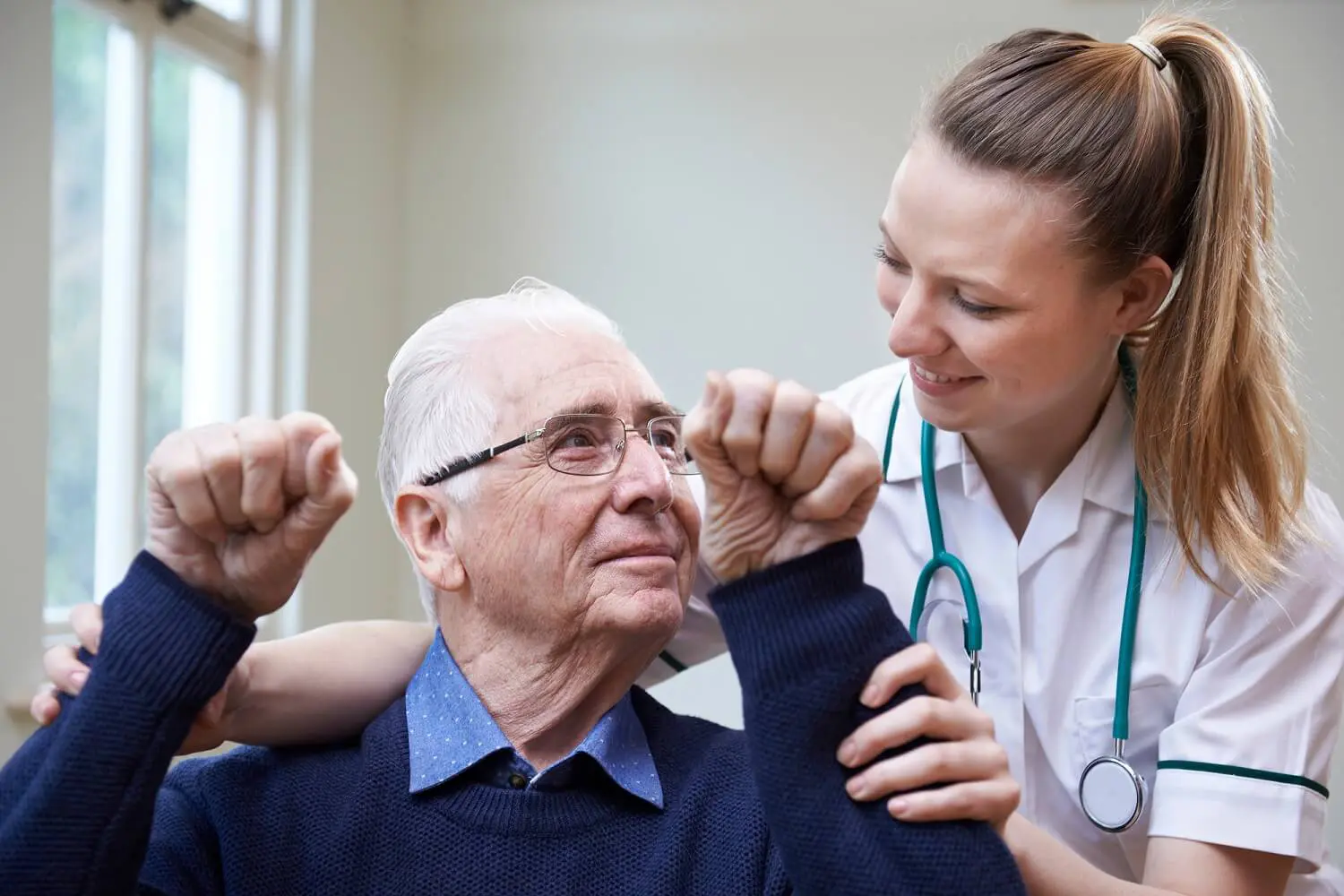In Home Stroke and Heart Attack Recovery
Both a stroke and a heart attack are extremely serious, life threatening conditions that require immediate medical attention and long-term changes when you return home. Our skilled nurses are proud to provide expert in home stroke and heart attack recovery services with compassion for when you or a loved one return home from treatment.
Our in-home heart attack and stroke recovery services include:

There are two types of Stroke: Hemorrhagic and Ischemic. Ischemic is the most common and is caused by a blood clot in one of the brain’s blood vessels. A Hemorrhagic Stroke is caused by a burst artery. Stroke symptoms usually come on quickly, often without warning and can lead to permanent disability or death. Symptoms of a stroke are weakness or numbness in one arm, slurred speech or difficulty speaking, drooping or loss of movement on one side of the face, loss of vision in one eye and extreme dizziness or loss of balance.
A heart attack can cause a range of different symptoms. The most common is crushing chest pain. Other symptoms that may indicate a heart attack include a feeling of pressure or squeezing in the chest (some describe as “an elephant sitting on the chest”), pain in the jaw, arms, neck, back or stomach, shortness of breath, and nausea or vomiting. It is more common for women to experience nausea and vomiting, shortness of breath or jaw pain than men.
Blood clots and blocked arteries can cause both heart attacks and strokes, and both are treated in similar ways. Both conditions are usually treated with clot-busting medications immediately after the symptoms begin. These medications help to dissolve blood clots and help to restore blood flow to the affected organ. In some cases, an endovascular procedure can be performed by a specialist to physically remove clots in the coronary or carotid arteries. This is a non-surgical procedure in which a tube is used to grip the clot and remove it.
After recovering from a stroke or heart attack, certain medications are prescribed to prevent future occurrences. These medications help by lowering blood pressure and cholesterol, reducing blood clots, and preventing future plaque buildup in the arteries. Rehabilitation or physical therapy is usually ordered by the physician and the type of therapy and goals of the treatment are usually quite different between the two conditions.
Recovering from a stroke or heart attack may involve certain lifestyle changes, such as following a heart-healthy diet, regular exercise, maintaining a healthy weight and quitting smoking. The skilled nurses at Allcare can assist you or your loved one with making these changes, following the prescribed medication regimen and monitoring vitals along the way. Contact us today to schedule a detailed consultation followed up by a customized care plan specific to your needs or the needs of your loved one.